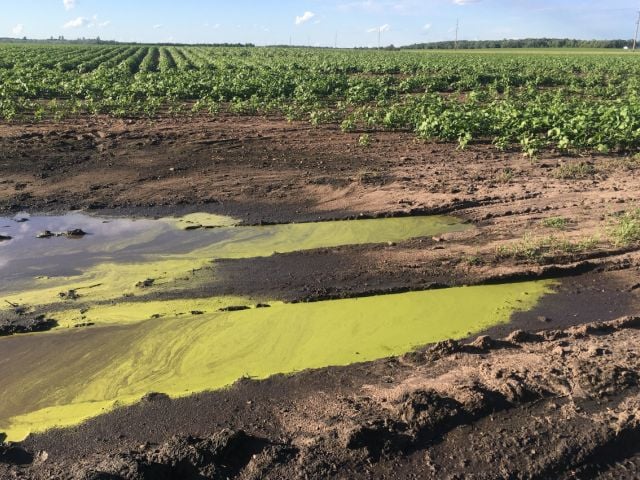
It’s time to face facts: the Renewable Fuel Standard (RFS) created by Congress in 2005 and expanded in 2007 is producing too many “bad biofuels” that increase greenhouse gas emissions, drive up food and gasoline prices and pollute our air and water – and not nearly enough “good biofuels.”
Once heralded as a way to combat climate change, the RFS has actually increased greenhouse emissions by encouraging farmers to plow up more than 23 million acres of land – an area the size of Indiana – releasing more carbon and nitrous oxide into the atmosphere.
According to Enviromental Protection Agency’s own analysis, the rapid expansion of corn ethanol increased greenhouse gas emissions in 2012 and will continue to boost them further for years to come.
That’s because most corn ethanol is either produced in a natural-gas fired dry mill ethanol plant – which (according to EPA) increases lifecycle greenhouse gas emissions by 33 percent compared to gasoline – or in a coal-fired dry mill plant – which increases the emissions by 66 emissions compared to gasoline.
But that’s not all.
As farmers have applied more fertilizer and pesticides to millions of acres of new cropland, the Renewable Fuel Standard has also resulted in more polluted farm runoff, greater water use in drought-stricken states, higher emissions of air pollutants such as particulate matter and ozone and rising food and gas prices for consumers.
Fortunately, some second-generation biofuels hold real promise, because many of these fuels convert wastes, not food crops, into fuel.
Unfortunately, the market for biofuels is saturated by corn ethanol, blocking the commercial development of these more promising fuels.
To allow second-generation fuels to gain a foothold, Congress must reform the Renewable Fuel Standard to phase out the corn ethanol mandate. The RFS, as currently designed, simply does not provide a sufficiently powerful incentive to develop these fuels.
In fact, all the evidence suggests the Renewable Fuel Standard is failing: Over the last year, the U.S. Energy Information Administration has on three separate occasions revised downward its predictions of cellulosic ethanol production in 2022.
At a minimum, Congress should level the playing field for second-generation biofuels by making all corn ethanol subject to the same high greenhouse gas reduction standards. Right now, most corn ethanol production is completely exempt from any emissions reduction standards.
What’s more, phasing out the mandate would create a level playing field for livestock operators, food manufacturers and restaurant owners who are paying more for feed and food.
Now is the time to reform a mandate that has, in the words of American Petroleum Institute’s Jack Girard, become “untethered from reality.”
On Wednesday July, 24, 2013 EWG's Senior Vice President for Government Affairs Scott Faber will testify before the Committee on Energy and Commerce Subcomitte on Energy and Power about the environmental impacts of RFS. Read his full written testimoney here.



